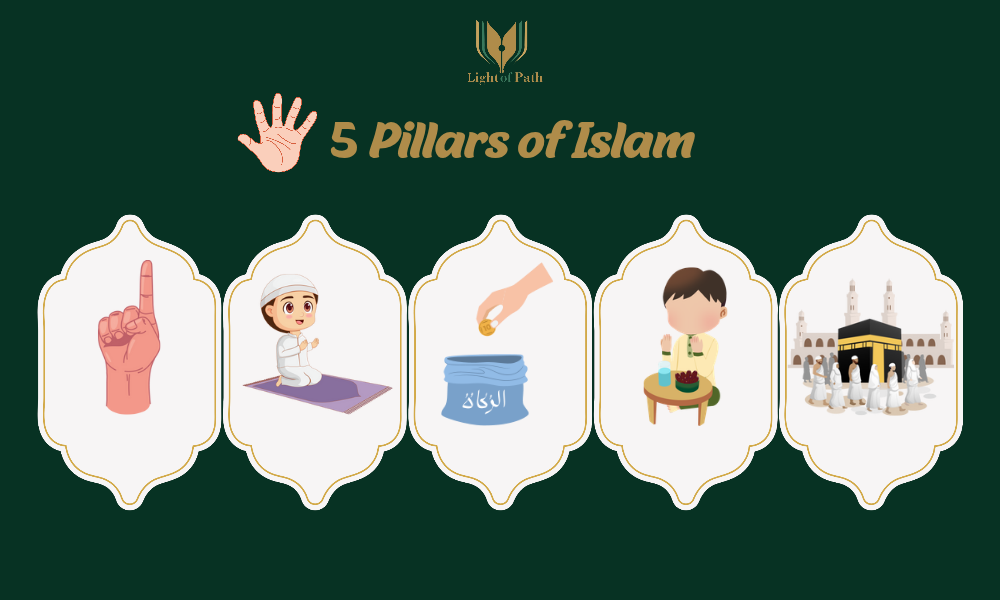
Islam is a religion built upon firm foundations that combine inner faith with outward actions. The religion is not complete unless belief in the heart is accompanied by righteous deeds. To truly understand Islam, one must become familiar with the Pillars of Islam and the Pillars of Faith, for together they form the basis upon which a Muslim’s life and conduct are built.
First: The Pillars of Islam
The Pillars of Islam are the practical acts of worship prescribed by Allah for His servants, through which they express their submission and devotion to Him. The Prophet ﷺ explained them in the well-known hadith:“Islam is built upon five: to testify that there is no god but Allah and that Muhammad is the Messenger of Allah, to establish prayer, to give zakat, to perform Hajj, and to fast in Ramadan.” (Agreed upon).
1. The Two Testimonies (Shahadatayn)
Uttering the testimonies is the entrance to Islam. Their meaning is to affirm with heart and tongue that no one deserves to be worshipped but Allah alone, and that Muhammad ﷺ is His Messenger and Prophet sent to guide mankind. This testimony is not mere words; it is firm belief in the heart reflected in actions and behavior.
2. Prayer (Salah)
Prayer is the second pillar and the very backbone of religion. It was prescribed five times daily to maintain a constant connection between the servant and his Lord, reminding him of the Day of Judgment. Prayer purifies the heart from heedlessness and restrains the body from sin.
3. Almsgiving (Zakat)
Zakat is a financial obligation designed to purify wealth from greed and to strengthen the spirit of solidarity among Muslims. It is a specific percentage of wealth given to the poor, the needy, and other eligible categories mentioned in the Qur’an. Through zakat, balance is achieved in society: the wealthy are reminded of their duty, and the deprived receive their rights.
4. Fasting (Sawm)
Fasting the month of Ramadan is a profound spiritual act of worship in which the Muslim abstains from food, drink, and desires from dawn until sunset in obedience to Allah. Fasting trains the believer in patience and self-control, while also reminding him of the suffering of the poor, softening his heart and strengthening his bond with God.
5. Pilgrimage (Hajj)
Hajj is the once-in-a-lifetime duty for those who are able to undertake it, performed in the Sacred House of Allah in Makkah. It gathers Muslims from every corner of the earth in a great display of unity and equality. In Hajj, the believer dons the simple garments of ihram, symbolizing humility and submission to Allah, renewing his covenant with Him and purifying his soul.
Conclusion
The five Pillars of Islam represent the practical foundation of a Muslim’s life. The testimonies establish the creed, prayer maintains the bond with God, zakat builds compassion within society, fasting refines the soul and strengthens the will, and Hajj reinforces the spirit of unity and devotion. These pillars are not empty rituals; they are means of shaping the righteous believer who contributes goodness to the world while preparing to meet Allah Almighty.

